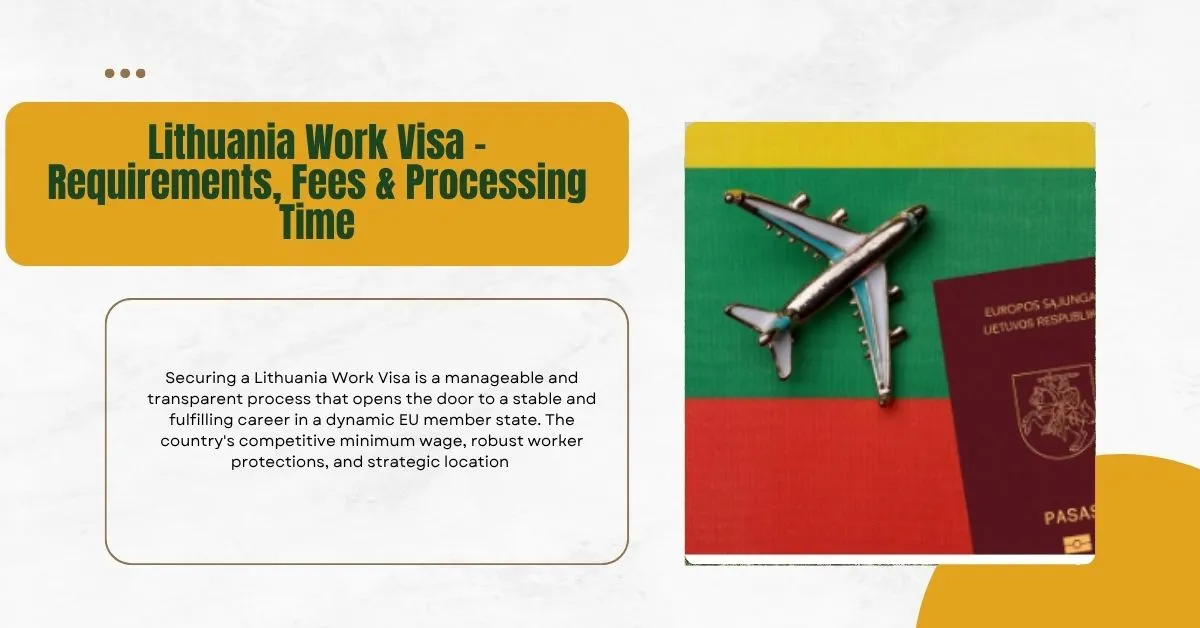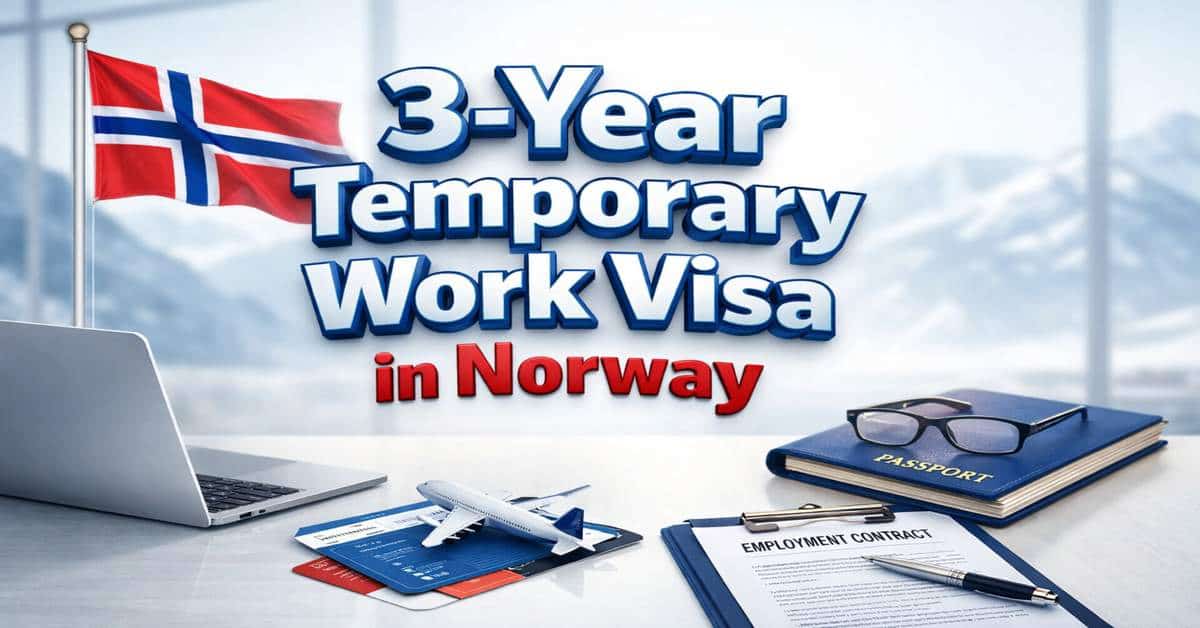Dubai Work VISA for Jobs in UAE for International 2026

Dubai Work VISA for Jobs in UAE for International 2026 opens doors to exciting career opportunities across sectors such as hospitality, retail, engineering, and admin. International candidates can apply for visas with salaries ranging AED 3,000–12,000 per month based on role and experience, plus benefits like accommodations and health cover. We guide you through eligibility, documentation, and job matching to help secure your position in Dubai and the UAE.
Check Also: Qatar Work VISA – Application Process
Can You Find Jobs in Dubai on a Visitor Visa?
Yes, you can enter the UAE on a Visitor Visa and search for jobs locally. This is a popular route for international job seekers. However, once you secure a job offer, your employer must sponsor your UAE residence permit and work visa. To complete this process, you’ll need to:
- Pass a medical examination – required for all work visa applicants.
- Meet qualification standards set by UAE’s Ministry of Human Resources and Emiratization (MoHRE).
Important Note: It is illegal to work on a Visitor Visa in the UAE. You must convert your visa to a work visa before starting employment.
Benefits of Job:
- Income That Is Not Subject to Taxation: Workers in the United Arab Emirates are permitted to retain their entire earnings, as there is no personal income tax in place.
- High Earning Potential: Competitive salaries, particularly in sectors such as finance, IT, healthcare, engineering, and hospitality.
- Infrastructure and Lifestyle of International Standard: International institutions, luxury housing, recreational facilities, high-quality healthcare, and modern amenities are all accessible.
- Career Development and Networking: Exposure to a diverse professional environment and multinational companies, which promotes career development and networking.
- Diverse Community and Cultural Exposure: A society that is multicultural, with individuals from more than 200 nationalities, fosters cultural exchange and diverse experiences.
- Security and Safety: Dubai is renowned for its high standards of living and low crime rates, which guarantee a secure environment for expatriates and their families.
- Opportunities for Travel: It is an ideal destination for international travel due to its strategic location, which provides fast access to Europe, Asia, and Africa.
- Options for Long-Term Residency: Opportunities for long-term residency, such as the Golden Visa, are available to professionals in specific sectors.
- Family sponsorship: Visa holders have the ability to sponsor family members, which enables them to reside and pursue education in the United Arab Emirates.
- Ease of Conducting Business: The potential to establish a business or work as a freelancer is available under specific visa categories.
Dubai Work VISA for Jobs in UAE for International:
To work in the UAE, you need the right type of visa based on your employment type. Here are the four main types of UAE work visas available:
1. UAE Standard Work Permit – Employer Sponsored
The UAE Standard Work Permit is the most common type of work visa. It is an employer-sponsored visa issued to skilled workers or highly qualified individuals who sign an employment contract with a UAE employer. This visa is subject to approval from the Ministry of Human Resources and Emiratization (MoHRE).
Eligibility Criteria:
- Must have a valid job offer from a UAE-based employer.
- Required to sign an employment contract with the employer.
- Must pass a medical fitness test conducted in the UAE.
- Your employer will handle the application process for the work visa and residence permit.
Application Process:
- Accept the Job Offer: Secure a job offer and sign the employment contract.
- Entry Permit: Your employer will apply for an Entry Permit through MoHRE.
- Medical Examination: After entering the UAE, undergo a medical test.
- Emirates ID: Apply for an Emirates ID using the medical fitness certificate.
- Residence Visa: Your employer completes the process to obtain your work visa and residence permit.
Validity: Usually issued for 2-3 years, depending on the employment contract.
Tip: This visa type is suitable for full-time employees working in skilled positions, including engineers, IT specialists, healthcare professionals, and teachers.
2. UAE Golden Visa
The UAE Golden Visa is a long-term residence visa for highly skilled individuals who do not need a local sponsor. It allows professionals to live, work, or study in the UAE for up to 10 years.
Eligibility Criteria:
- Highly skilled professionals such as healthcare workers, engineers, scientists, athletes, artists, and innovators.
- Entrepreneurs and investors with significant contributions to the economy.
- Outstanding students and graduates from UAE’s top universities.
Benefits:
- 10-year residency with the option to renew.
- No need for a local sponsor.
- Sponsor your dependents, including spouse and children.
- Full ownership of business ventures in the UAE.
Tip: This visa is ideal for experts in high-demand fields who wish to establish long-term careers in the UAE.
Source: Federal Authority for Identity, Citizenship, Customs, and Port Security (ICP)
3. UAE Nomad Visa
The UAE Nomad Visa is designed for remote workers and digital nomads who want to live in the UAE while working for employers outside the country. This visa offers several tax advantages and access to UAE’s world-class infrastructure.
Eligibility Criteria:
- Remote workers employed outside the UAE.
- Freelancers and self-employed individuals earning a stable income.
- Proof of employment contract or evidence of business ownership.
Benefits:
- Zero income tax – no capital gains tax, local taxes, or withholding taxes.
- Access to Emirates ID and UAE healthcare services.
- Free internet access in designated remote work hubs.
Tip: The Nomad Visa is perfect for freelancers, entrepreneurs, and digital nomads looking for a tax-free lifestyle in the UAE.
Source: UAE Government Portal
4. UAE Green Visa
The UAE Green Visa is aimed at self-employed individuals, freelancers, and investors. It allows holders to work and live in the UAE for up to 5 years without needing a local sponsor.
Eligibility Criteria:
- Freelancers and self-employed professionals in specialized fields.
- Investors and partners involved in UAE-based businesses.
- Proof of freelancing contracts or business ownership.
Benefits:
- 5-year residency with renewal options.
- No need for a local sponsor.
- Sponsor your family members, including spouse and children.
- Freedom to change jobs without employer sponsorship.
Tip: Ideal for self-employed professionals, investors, and business owners seeking flexibility and independence.
Source: UAE Government Portal
Which UAE Work Visa is Right for You?
Choosing the right work visa depends on your employment type and career goals:
- Full-time employees: Opt for the Standard Work Permit.
- Highly skilled professionals and investors: Consider the Golden Visa.
- Remote workers and digital nomads: Choose the Nomad Visa.
- Self-employed individuals and freelancers: Apply for the Green Visa.
Tip: Research and select the visa type that aligns with your career goals and lifestyle preferences.
Final Thoughts
The UAE offers diverse work visa options to cater to different professional needs. Whether you’re a skilled worker, entrepreneur, freelancer, or digital nomad, you can find a suitable visa to live and work in the UAE.
Ready to Start Your UAE Journey?
Explore more about UAE work visas and start your application process today. Visit the UAE Government Portal for detailed information and guidelines.
Frequently Asked Questions:
What is the new visa rule in the UAE?
Eligible Indian nationals with a normal passport valid for a minimum of six months can obtain a single-entry, 14-day visa on arrival.
Is Dubai giving work visas?
Before moving to Dubai or the UAE, expats, or foreign nationals, must apply for a UAE work visa. This application process involves several steps, such as choosing the right work visa, obtaining an entry visa, applying for an Emirates ID, and getting a medical checkup.
What is the employment visa in the UAE?
The UAE offers a variety of work permits to cater to its diverse business landscape. These range from standard work permits to specialized permits for different sectors and special economic zones. Each category has specific eligibility criteria, an application process, and required documentation.



